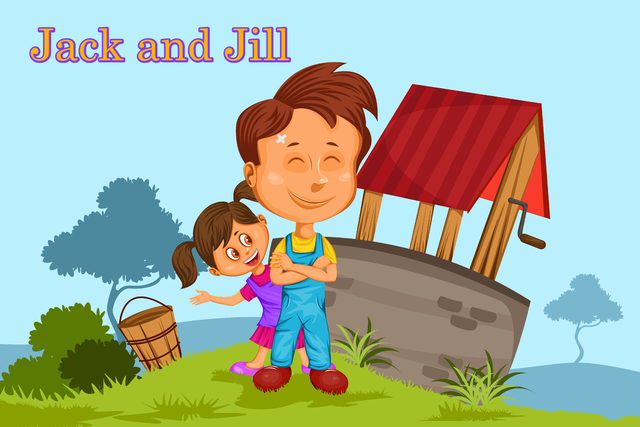Learning how to speak English and how to pronounce English words may be easier if we find some rhythm. To that end, we can try reciting poems. There is an abundance of English poems out there that our children may find amusing, and learning them can be a lot of fun.
Twinkle, Twinkle Little Star
Twinkle, twinkle, little star,
How I wonder what you are.
Up above the world so high,
Like a diamond in the sky.
Twinkle, twinkle, little star,
How I wonder what you are!
Jack and Jill
Jack and Jill went up the hill
To fetch a pail of water
Jack fell down and broke his crown
And Jill came tumbling after
Up Jack got, and home did trot
As fast as he could caper
He went to bed to mend his head
With vinegar and brown paper
Mary Had a Little Lamb
Mary had a little lamb,
Its fleece was white as snow,
And everywhere that Mary went
The lamb was sure to go;
He followed her to school one day—
That was against the rule,
It made the children laugh and play,
To see a lamb at school. (…)
Wee Willie Winkie
Wee Willie Winkie runs through the town,
Upstairs, downstairs in his night-gown,
Tapping at the window, crying at the lock,
Are the children in their bed, for it’s past ten o’clock?
Baa, Baa Black Sheep
Baa, baa, black sheep,
Have you any wool?
Yes sir, yes sir,
Three bags full;
One for the master,
One for the dame,
And one for the little boy
Who lives down the lane.

Memorising poems like these will certainly be helpful when it comes to learning English, especially with pronunciation. However, you need to follow some simple rules:
Voice modulation.
Remember to use appropriate intonation as you recite, and try to encourage the learner to follow you. This is an important aspect of any poetry.
Try to act it out. If the poem features a few characters, you may want to change your voice to reflect that. This will help the child to understand any potential dialogue, and thus to memorise the poem.
Divide.
To help the child memorise it, break the poem down into paragraphs or lines. You can repeat them as needed before reciting the entire poem.
Repeat.
In order for the student to be able to recite the poem by themselves, repetition is key. First, you can repeat each section, then the entire poem. This will provide a structured way to absorb the entire text.
Tongue twisters
There is another sort of poem which is great for teaching pronunciation. The children often find them really funny as they use a lot of similar words which differ by some small detail. Trying to recite them very quickly can result in an outburst of laughter from even the grumpiest of children.
Peter Piper
Peter Piper picked a peck of pickled peppers
A peck of pickled peppers Peter Piper picked
If Peter Piper picked a peck of pickled peppers
Where’s the peck of pickled peppers that Peter Piper picked?
Susie Shine
I saw Susie sitting in a shoe shine shop.
Where she shines, she sits, and where she sits, she shines.
Fuzzy Wuzzy
Fuzzy Wuzzy was a bear,
Fuzzy Wuzzy had no hair
Fuzzy Wuzzy wasn’t very fuzzy, was he?
Denise Sees
Denise sees the fleece,
Denise sees the fleas.
At least Denise could sneeze
And feed and freeze the fleas.
Three Cheese Trees
Through three cheese trees three free fleas flew
While these fleas flew, freezy breeze blew
Freezy breeze made these three trees freeze
Freezy trees made these trees’ cheese freeze
That’s what made these three free fleas sneeze
Doctor Doctor
If one doctor doctors another doctor,
Then which doctor is doctoring the doctored doctor?
Does the doctor who doctors the doctor, doctor the doctor the way the doctor he is doctoring doctors?
Or does he doctor the doctor the way the doctor who doctors doctors?
Tongue twisters are excellent for teaching pronunciation in an entertaining way. This is particularly true when we encourage the kid to repeat them faster and faster, as it results in some actual “tongue twisting” sooner or later.
Remember to make it as fun as you can
Keep in mind that the children aren’t required to recite the entire poem. It is a potential goal, but try to make it more fun, encouraging the child to learn as much as possible. Memorising a poem is not an easy task for anyone, and setting too high a challenge may prove discouraging and demotivating. Ensure your expectations are realistic, and reward minor successes as well.
If you want to enroll your child for a trial English lesson with a native speaker online, act now!









































